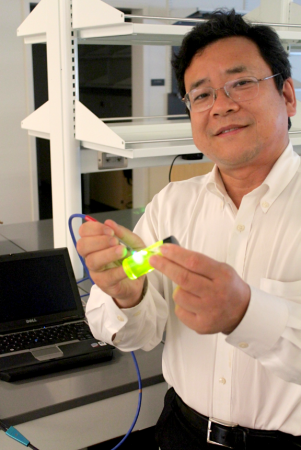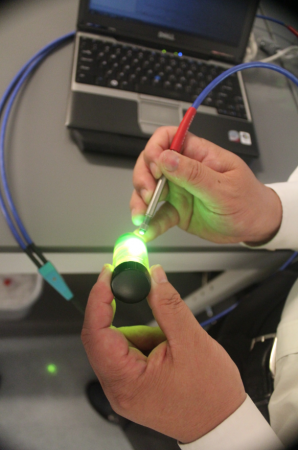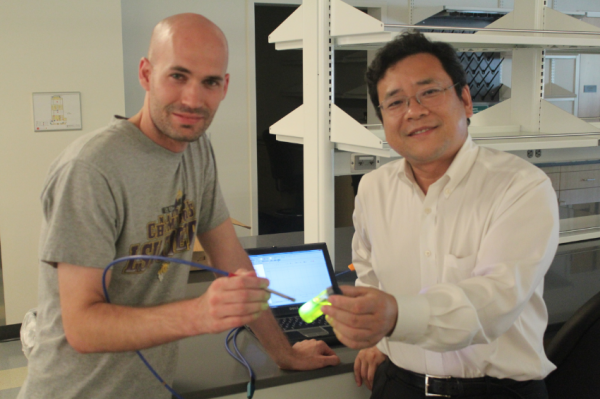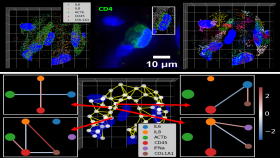A BME professor recently discovered how to use tiny glowing particles to detect malignant cancer cells. And he's turning his groundbreaking cancer-detection technology into a commercial venture.
“One of the biggest challenges with surgeries to remove tumors is that there are residual cancer cells left behind. They account for about 40 percent of cancer recurrence,” said Shuming Nie, Ph.D., a Wallace H. Coulter Distinguished Faculty Chair and director of the Emory-Georgia Tech Cancer Nanotechnology Center. “Our technology uses tiny luminescent particles that bond to these cancerous cells to show doctors where the malignant cells remain so they can be removed.”
Nie hopes to commercialize the technology by early 2015, likely starting in Europe where the regulatory process moves faster. Nie will work in tandem with the biomedical technology company Spectropath, a spinoff founded by one of his former students.
Spectropath was started in 2009 to further develop and commercializing image-guided cancer surgery.
The venture recently received a boost from the National Institutes of Health, which awarded Nie and his team a five-year, $6.9 million transformative research award.
“This award supports projects that are high-risk, high-payoff,” Nie said. “In other words, we may face major challenges, but we also have the potential to make an enormous impact on the field of medicine. This technology will literally save lives.”
The technology has a host of practical applications where it may prove useful. It could allow for minimally invasive pathology via fiber optics, as opposed to the generally random sampling currently used in biopsies. Scientists are already researching how it might help combat cardiovascular disease, using the same ultra-small glowing particles to target plaque in the arteries. It may have implications for cell-based therapy and regenerative medicine as well.
“Biomedical engineering is a field that allows you to turn your personal interests and curiosities into practical applications for human health,” Nie said. "It’s a most satisfying field.”
Clinical trials on the new technology are expected to begin in Europe early next year.
Related Links:
Written by Chris Calleri
Media Contact
Chris Calleri
Communications Manager
Wallace H. Coulter Department of Biomedical Engineering
Georgia Institute of Technology & Emory School of Medicine
313 Ferst Drive, Suite 2120
Atlanta, GA 30332-0535
Phone: 404.385.2416
Keywords
Latest BME News
Commercialization program in Coulter BME announces project teams who will receive support to get their research to market.
Courses in the Wallace H. Coulter Department of Biomedical Engineering are being reformatted to incorporate AI and machine learning so students are prepared for a data-driven biotech sector.
Influenced by her mother's journey in engineering, Sriya Surapaneni hopes to inspire other young women in the field.
Coulter BME Professor Earns Tenure, Eyes Future of Innovation in Health and Medicine
The grant will fund the development of cutting-edge technology that could detect colorectal cancer through a simple breath test
The surgical support device landed Coulter BME its 4th consecutive win for the College of Engineering competition.
New research from Georgia Tech helps doctors predict how therapies will interact with a child's immune system, potentially improving outcomes and reducing risks.










